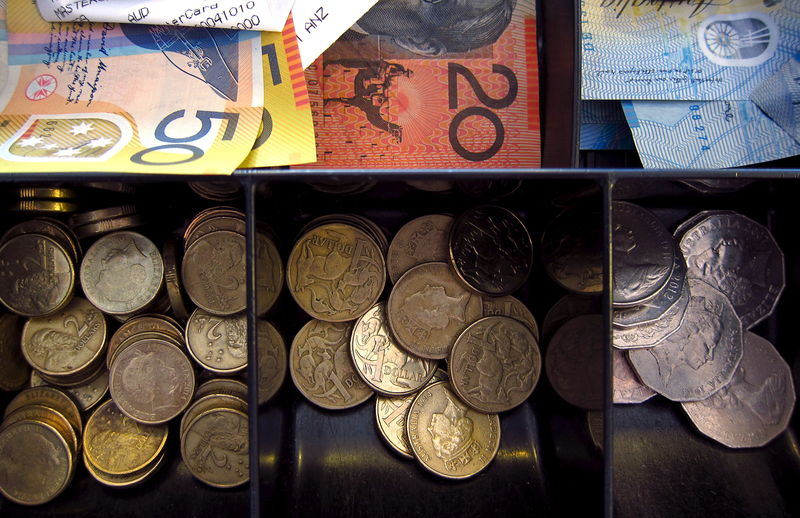Australia CPI inflation eases more than expected in July
2023.08.29 22:04

© Reuters.
Investing.com– Australian consumer price index inflation eased more than expected in July, falling further from 30-year peaks as a series of sharp interest rate hikes by the Reserve Bank appeared to be working as intended.
rose 4.9% in the 12 months to July, data from the Australian Bureau of Statistics (ABS) showed on Wednesday. The reading was lower than expectations of 5.2%, as well as the prior month’s reading of 5.4%.
Monthly inflation fell below the 5% mark for the first time since February 2022, having fallen sharply from a peak of 8.4% hit in December.
July’s reading was largely driven by easing fresh food and fuel prices, amid some stability in global supply chains. Excluding the two items, core inflation fell to 5.8% from 6.1% in the prior month.
The softer inflation reading was also aided by rebates on electricity prices, which surged nearly 16% in the 12 months to July. Australia had introduced some rebates on electricity prices in July to help ease the impact of rising energy costs on household spending.
“If we exclude the impact of rebates from the July 2023 figures, electricity prices would have recorded a monthly increase of 19.2 per cent,” Michelle Marquardt, ABS head of prices statistics said in a statement.
But household spending was already declining in the face of high mortgage rates and elevated food prices. Australian have largely flatlined this year, while fell to near record lows.
Wednesday’s reading indicated that the (RBA) most severe rate hike cycle in a decade was now bearing fruit, and could necessitate a less hawkish stance from the central bank over the coming months. The bank hiked rates by 400 basis points over the past year, as it moved to curb sticky inflation.
The RBA held rates steady for the past two months, and now has more cause to pause future rate hikes. Still, inflation remains well above the RBA’s 2% annual target, and is only expected to fall to the target by mid-2025.
The fell 0.4% after the inflation data, given that the prospect of fewer rate hikes make the currency appear less attractive.







